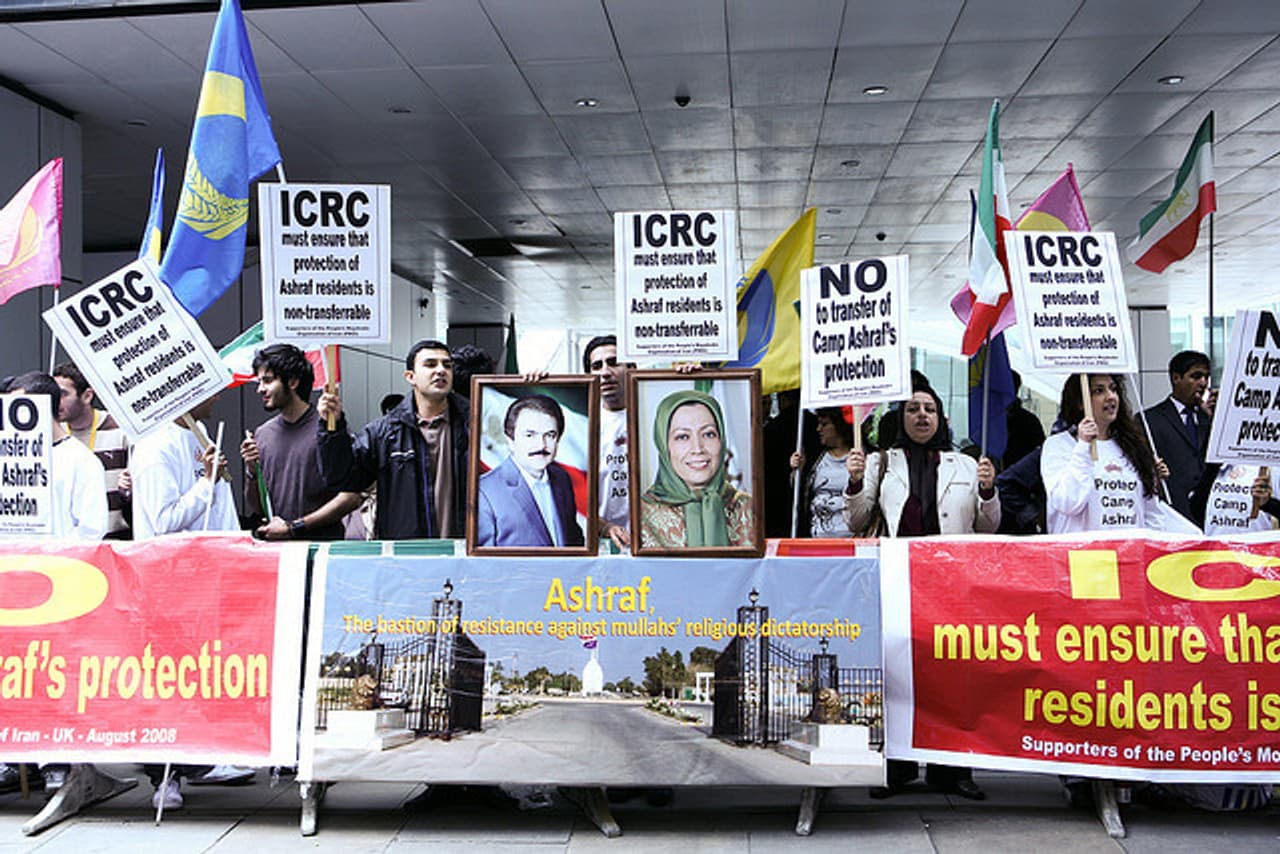
Secret cables show US turned blind eye to anticipated slaughter
Amid reports of a massacre of Iranian dissidents by Iraqi government troops, the Bureau of Investigative Journalism can reveal how the US failed to prevent an earlier slaughter.
The Mujahadeen e-Khalq (MEK) or People’s Mujahedin of Iran (PMOI) an Iranian opposition group, claims up to 19 of its members were killed last night after Iraqi tanks entered the enclosed city of Ashraf, north of Baghdad, where the group have lived in exile for decades.
The camp is not accessible to journalists and the figures have yet to be confirmed.
The incursion follows an earlier massacre, in July 2009, when 11 Ashraf residents were killed and hundreds injured. At the time the MEK posted graphic pictures of corpses with gunshot wounds on the Internet, alongside footage of dissidents being driven at and run over by a fast-moving Humvee.
Leaked US diplomatic cables obtained by the Bureau from Wikileaks show the US officials were aware of the potential for a humanitarian disaster in advance of the 2009 killings. A US army general had even warned his troops would have a responsibility to intervene. The group was unarmed, having laid down its weapons seven years ago. But the cables reveal how the US government failed to act for fear of breaching its security agreement with Iraq over people it still classified as terrorists.
In a cable sent in March 2009 US deputy chief of mission Patricia Butenis said: “The USG (US government) faces a challenging dilemma: we either protect members of a foreign terrorist organization against actions of the Iraqi security forces and risk violating the US-Iraq security agreement, or we decline to protect the MEK in the face of a humanitarian crisis, thus leading to international condemnation”.
Following the July 2009 killings the US State Department defended the Iraqi forces’ actions as “reasonable”.
A Spanish court is now investigating the deaths as a potential war crime by Iraqi forces.
Responsibility for Ashraf and its 3,400 residents passed from the US to Iraq in 2009 as part of the general transfer of power. Within three months US officials were predicting a humanitarian crisis at Ashraf as the Iraqi authorities, under pressure from Iran, tried to force the dissidents out.
Butenis noted in March 2009 that: “GOI (Government of Iraq) pressure on the MEK aimed at encouraging departure from Iraq is beginning to cross the line into inhumane treatment.”
Another cable sent in March records a US general warning that his troops would have a responsibility to intervene if serious injuries occurred during any incursion into the city.
By early July 2009 US ambassador Christopher Hill, who replaced Butenis, was observing in a cable that an Iraqi incursion into Ashraf “would likely cost lives.”
Two weeks later armed members of the Iraqi army and police forced their way into the city after negotiations for peaceful entry broke down. Seven of the eleven men who died in the melee sustained fatal gunshot wounds.
In response to international criticism that several hundred US troops stationed nearby had failed to intervene, the US State Department said: “The government of Iraq’s action in Ashraf was a reasonable act of sovereignty and in keeping with its obligations to provide security at Ashraf”.
The cables also confirm the role of Tehran in the Iraqi government’s actions against the MEK. They contain numerous complaints from Iraqi prime minister Nouri al-Maliki about Iranian threats to attack the camp using long-range missiles or specially trained insurgents.
One of Butenis’ March 2009 cables records Iraqi national security advisor Mowaffaq al-Rubaie justifying an incursion into Ashraf on the grounds that Iran had vowed to attack the city if its occupants were not removed within two months.
“GOI (Government of Iraq) pressure is … beginning to cross the line into inhumane treatment”
Other documents record Iraqi official alleging terrorist activity by the MEK, which could not be substantiated by the US.
The Audiencia Nacionale (national court) of Spain is now investigating the July deaths and has summoned the police chief of Diyala province, Major General Abdul Hussein al-Shemmari to appear before it on March 8.
The probe will also examine current conditions at Ashraf following allegations from the MEK that Iraqi authorities are impeding access to medical treatment.
Mohammed Mohadessin, chairman of the MEK’s political wing, the National Council of Resistance of Iran, said in January 2011: “The Ashraf situation remains very volatile. To avoid another humanitarian catastrophe the United States and United Nations must take responsibility for protection of Camp Ashraf.” He added: “We warned US officials on numerous occasions that transferring protection of Ashraf to the Iraqi authorities would lead to a humanitarian catastrophe.”
For the US authorities in Iraq, the situation has been complicated by the MEK’s presence on a US list of foreign terrorist organisations, despite the group voluntarily disarming in 2003. The MEK was removed from a similar EU list in January 2009.
Additional reporting by James Ball.




